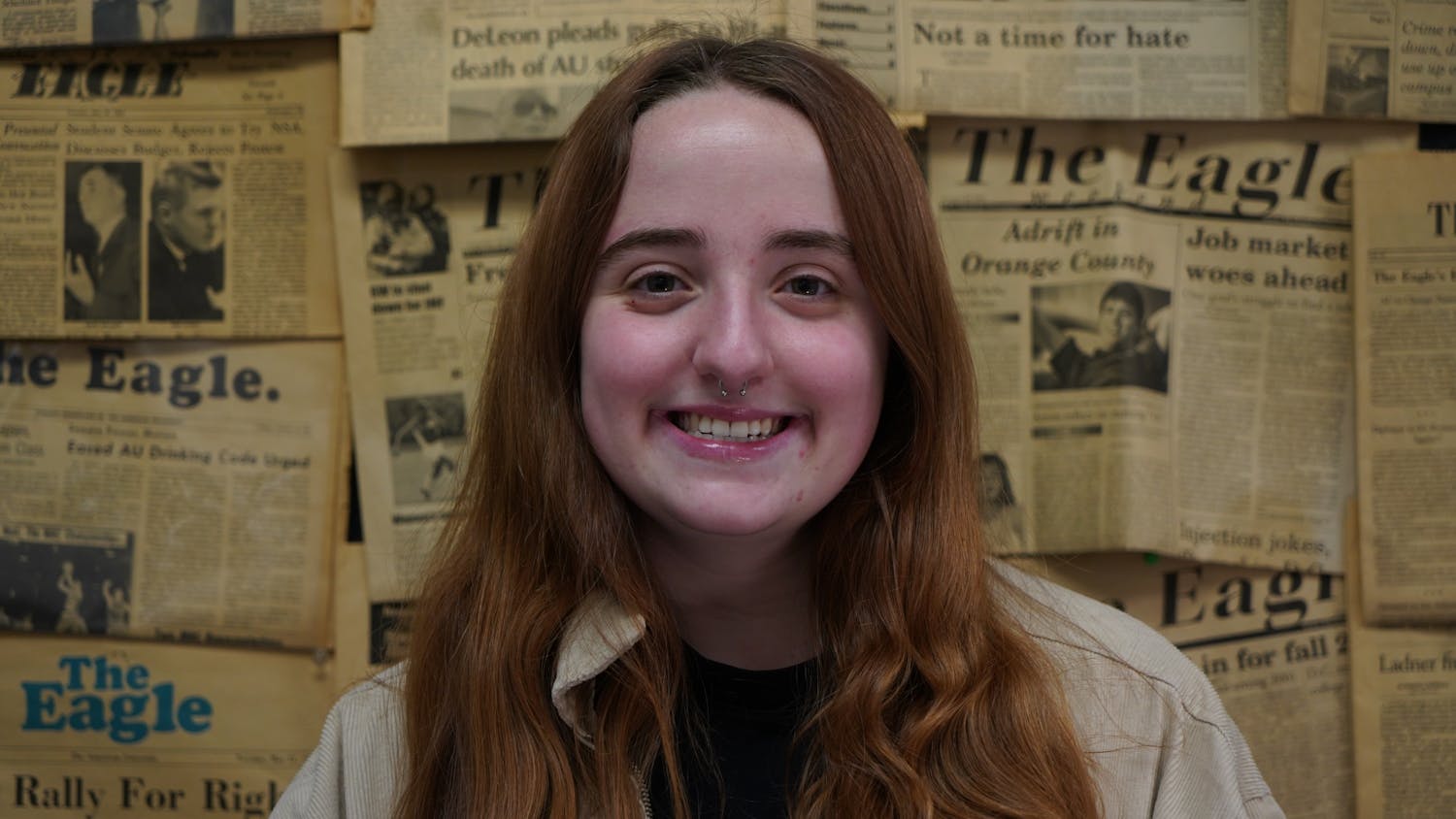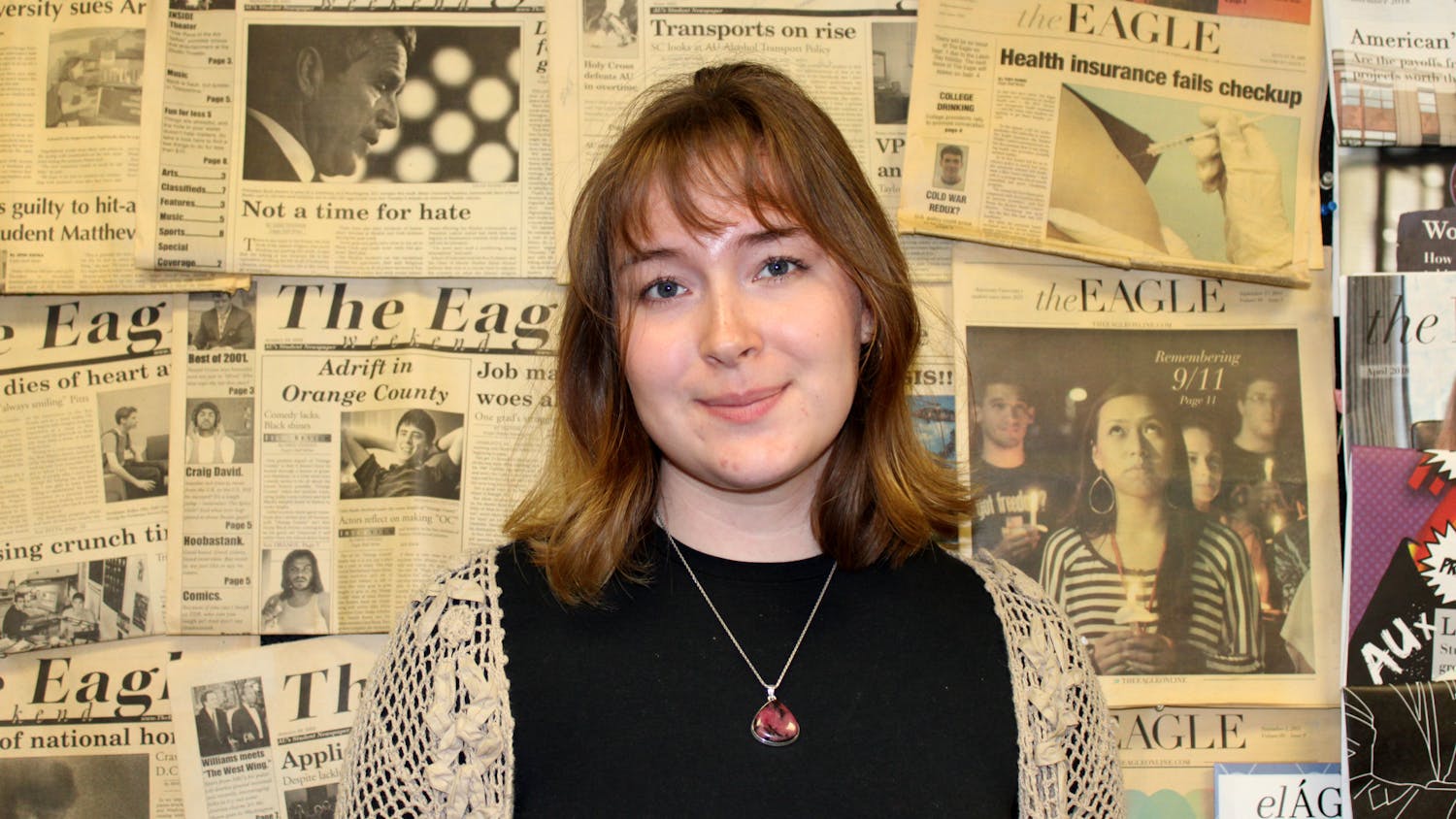As we sat in Bender Arena my freshman year, author Seamus McGraw was trying to break the ice. He stood onstage reading tweets from AU students with his name. His favorite? “@SeamusMcGraw is a douchebag.”
The summer before my freshman year, AU required incoming freshman to read McGraw’s “The End of Country.” The book was about a county in Pennsylvania and the damage fracking caused there. After reading that book, I was surprised to discover that AU invests in companies that frack.
Divestment, as sophomore and Fossil Free AU member Sam Bellavance explains, is part of the club’s campaign. It’s a tool.
“Our endowment is a pool of money, basically, around $540 million, which is invested into various companies and projects. When you invest something, you expect a return,” he said.
The endowment grows from itself. Every time that you get back a return, part of that return goes back into the endowment, so it grows.
“Divestment,” he adds, “is just the opposite of that. It is taking an investment we’ve made, and saying ‘can we unmake that?’”
Endowments are an incredibly common way to finance universities, charities, private foundations and trusts. Fundamentally, that makes sense. When an institution can, in a sense, grow its own money, they are freed from the burden of having to ensure that each year they have enough donations and tuition checks to continue running. The endowment helps to fund research, student programs and student aid.
AU can exist at a basic level through the endowment and can expand through donations and tuitions. When we are making money, we are making good investments. But what those investments do for the world is a different matter. John Griswold of Commonfund says that one fifth or less of endowments consider environmental or social goals when investing.
Fossil Free AU is a coalition of students who would like to have AU become one of those few environmentally-focused schools. They want to change our investment to reflect the values that AU espouses. Specifically, they would like to divest from 198 companies including Exxon, Mobil and Shell. If these companies burn all of the oil they currently have, the temperature of the world will go up six degrees.
At first glance, it appears that the Fossil Free students are asking us to make a value judgment. Our planet, or our programs? After all, if we divest, won’t we lose a lot of money?
To put it simply….no! The theoretical risk for building a carbon-free portfolio is 0.0044 percent. When Unity College divested, it did not lose money. The endowment is an incredibly long-term investment. When you have that diverse of an investment for that long, you are nearly guaranteed a return. In the long run, like a tree, it will grow.
The problem goes beyond just efficacy and values. No matter which school you are in, every AU student has had, in at least one class, a discussion about climate change and the havoc that oil drilling is imposing on our planet. When we require students to read books like “The End of Country” and teach them about environmentalism, we are sending our students out into the world armed with the tools necessary to fight climate change. But with our endowment set up the way it is, our University is helping feed the hydra of oil and natural gas. Not only do AU students need to work to put our money where our mouths are, we need to stop jeopardizing our own futures.
Shelby Ostergaard is a sophomore in the School of Public Affairs.




